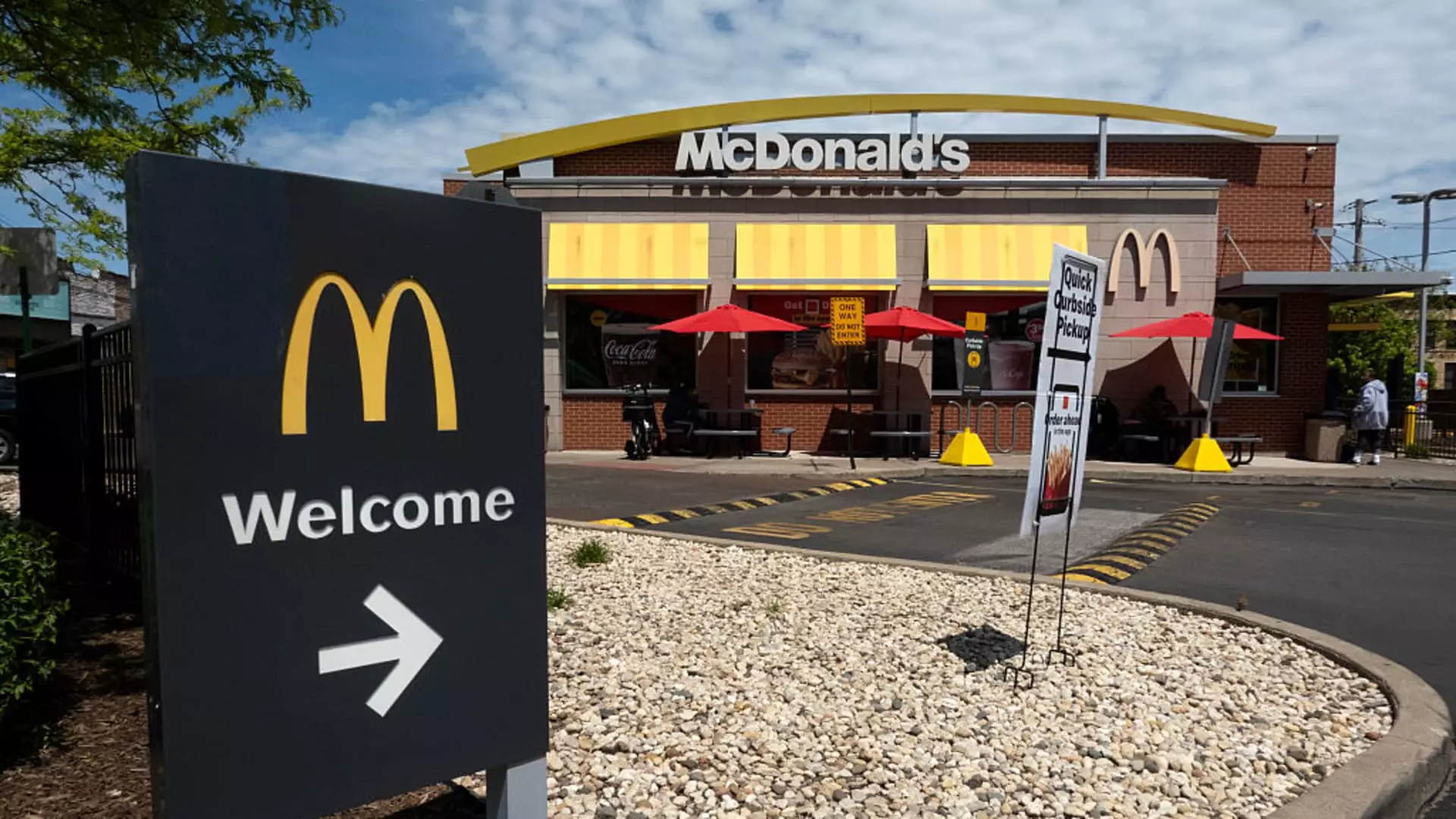In an era of persistent economic unpredictability, the lure of dividend-paying stocks becomes especially compelling. While the S&P 500 hitting record highs might project optimism, underlying market complexities suggest cautious optimism is wiser. Investors should recognize that dividends offer a palpable hedge against volatility—providing reliable income streams even when capital appreciation stagnates. This makes dividend stocks a strategic tool for navigating choppy waters, offering both stability and growth potential.
Rather than blindly chasing high-flying tech or speculative assets, turning to companies with robust fundamentals and consistent dividend records signals a prudent approach. The wisdom of seasoned Wall Street analysts, whose insights stem from meticulous evaluation of earnings, cash flows, and competitive positioning, can help identify these dividend gems. Examining three such picks reveals the nuanced interplay between market challenges and solid income prospects.
McDonald’s: A Resilient Dividend Powerhouse
McDonald’s (MCD) embodies the archetype of a stalwart dividend investment, boasting 49 consecutive years of increasing dividends—a feat inching it closer to “Dividend King” status. Yielding around 2.4% with annual dividends surpassing $7 per share, McDonald’s isn’t just a safe bet; it’s an income generator with unapologetic staying power. What strikes me as especially impressive is how the company harmonizes innovation with value, maintaining its appeal even to budget-conscious consumers amid inflationary pressures.
Jefferies’ Andy Barish and TipRanks’ AI analyst both champion McDonald’s as a smart buy, highlighting accelerated U.S. same-store sales and promising international growth. Crucially, McDonald’s competitive advantages—its scale, supply chain efficiency, and brand dominance—translate into operating margins and free cash flow that robustly back dividend payouts. Barish’s confidence in McDonald’s defensive qualities resonates with me; in uncertain economies, investors crave resilience and predictability, both evident in MCD’s trajectory.
However, one must not romanticize. The potential downside lies in an increasingly competitive fast-food landscape and evolving consumer tastes. While McDonald’s adapts well so far, complacency would be costly. Investors must ensure their dividend expectations adjust to real-world market shifts.
EPR Properties: Navigating Niche Real Estate with a Dividend Lens
EPR Properties (EPR), a REIT specializing in experiential venues such as movie theaters and amusement parks, presents a compelling yet riskier dividend proposition. A 6.2% dividend yield may attract income hunters, but the company operates in sectors battered by structural shifts—streaming services, changing leisure patterns, and pandemic aftershocks. Nonetheless, analyst Simon Yarmak’s recent upgrade, based on improved cost of capital and growth prospects, indicates a thoughtful turnaround is underway.
What I find somewhat daring yet intriguing is EPR’s effort to reinvest in alternative assets like golf and wellness centers. This pivot reflects strategic adaptability, a trait often underappreciated in REITs pigeonholed into rigid asset bases. The enhanced weighted average cost of capital from 9.3% to about 7.85% signals a refreshed ability to grow through acquisitions, potentially energizing future earnings and dividends.
Still, investors should heed that such transformations are not guaranteed successes. Experiential real estate demands deft management and an ability to read evolving consumer trends—failures here can imperil dividends. Hence, EPR appeals more to investors with a moderate risk tolerance who appreciate income but are willing to embrace occasional oscillations.
Halliburton: Dividend Income from a Complex Energy Sector
Halliburton (HAL), an oilfield services giant, brings a fundamentally different profile to the dividend conversation. Its 3.3% yield is modest but supported by promising international market resilience that seems overlooked in current valuations. Goldman Sachs’ Neil Mehta underscores Halliburton’s differentiated technologies and the durability of its overseas contracts as key factors underpinning dividend sustainability.
What’s fascinating—and somewhat controversial—is the firm’s exposure to unconventional drilling and specialized services in volatile geopolitical regions. While this exposes HAL to cyclical risks, management’s bets on “idiosyncratic growth” areas such as Saudi Arabia’s unconventional completions and artificial lift technologies point to niche expertise that could drive margins higher.
Yet, as a center-wing liberal-leaning observer, I must balance recognition of Halliburton’s dividend strength with concerns about the broader energy sector’s environmental impact and long-term sustainability. Dividends in fossil fuel industries, while lucrative, carry the ethical weight of fueling climate change. Investors must wrestle with whether rewarding such companies aligns with responsible capitalism.
The Larger Implications for Dividend Investors
All three companies underscore the complex calculus involved in dividend investing today. It’s no longer sufficient to chase yields blindly; one must interrogate a company’s earnings quality, competitive moat, and adaptability to external pressures. McDonald’s exemplifies relative safety and brand dominance; EPR illustrates dynamic repositioning amid sectoral headwinds; Halliburton reflects structural industry challenges paired with technological differentiation.
Importantly, relying on top analysts’ ratings is helpful but should complement—not replace—individual scrutiny. Analysts’ past performance is instructive but not infallible. Dividends can be slashed, stocks can underperform, and broader economic shocks can derail even the surest prospects. Thus, investors who prioritize dividends must adopt a holistic view, blending quantitative metrics with qualitative insights and ethical considerations.
In a world of macro uncertainties and volatile markets, dividend stocks represent both a refuge and a source of empowerment—enabling investors to claim a stake in resilient businesses that reward patience and prudent analysis. Yet, like all investments, this path demands vigilance, nuance, and a willingness to question prevailing wisdom rather than follow it blindly.


Leave a Reply